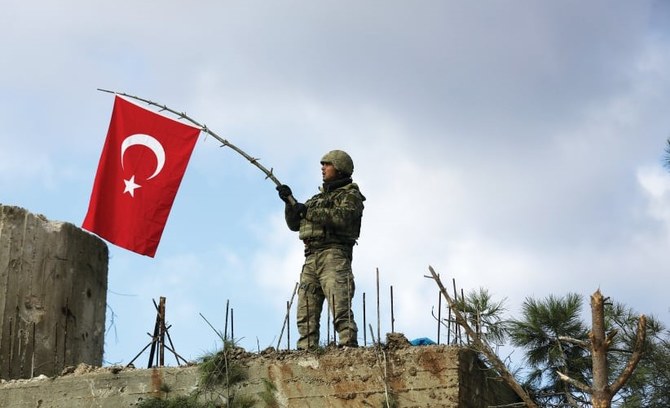
Will there be war? By which, of course, I mean: Will there be a shooting war between Iran and the US? A lot of people — particularly in America — seem to think it possible. And many of those think that, if it happens, it will be the fault of the US and specifically President Donald Trump, who, in the very week when he was supposed to be helping solve the Israel-Palestine conflict, decided instead to stir up a hornet’s nest in the Gulf by first threatening Iran, then backing down, then threatening it again, then offering talks and then slapping humiliating sanctions on the supreme leader and eight of his little helpers.
Now I’m not excusing Trump. Unpredictability can sometimes be an advantage; if you’re trying to keep someone stronger off balance, for example. But, if you want to deter someone weaker than you in a more sustained way, then predictability is better, especially if your unpredictability begins to look like cluelessness. That’s one of the key lessons to be drawn from the consistent way the US dealt with Iran in the late 1980s — a lesson forgotten or ignored when President Barack Obama failed to enforce his own red lines in Syria in 2014.
But we really do need to speak about Iran too. Iran’s strategy in the region has been consistent since 1979 — a sustained push to establish influence and eventually ideological and material hegemony across large parts of the region and to ensure that any battles are fought far from its own territory. Some of this is understandable, given the disasters of the Iran-Iraq War, much of it fought on Iranian territory.
Iran may have retreated from time to time in order to recover strength, dial down tensions it couldn’t handle or switch the point of attack. But you can’t really say that all those years spent building, equipping and backing Hezbollah, Amal, Da’wa, the key Shiite militias in Iraq, Saraya Al-Akhtar and Saraya Al-Mukhtar in Bahrain and now the Houthis (and no, I’m not saying they’re all simply puppets of Tehran, so please don’t write in), or opportunistically backing the Taliban and Hamas, snuggling up to Caracas and Havana and creating a massive clericalized structure of internal oppression, represent a progressive national security strategy. It would have been far better for Iran to reform its economy, maintain and modernize its oilfields, invest in new and peaceful technologies, liberalize its trade, adopt international banking and accounting standards, grow jobs, free the talents of its extraordinary people — who are getting restive — and get on with its neighbors rather than spend so much time and money plotting against them.
One result of that plotting is that Iran’s reach is wider than ever before. The clearly coordinated events of the past month — the acknowledged shooting down of an unmanned US surveillance drone; unacknowledged attacks on shipping; missile and mortar attacks on the US embassy, contractor bases and an Exxon-Mobil facility in Iraq; Houthi drone and missile attacks on Saudi airports, power and desalination plants, and Aramco pumping stations and the East-West pipeline in Riyadh governorate (with at least the possibility that the latter strike originated not in Yemen but Iraq) — have been specifically designed to be mostly deniable; to advertise intent; and to showcase the range of capabilities, targets and options that Iran and its allies now have.
The fact that nothing much happened in Syria or Lebanon (or indeed in the northern Gulf) is probably not a coincidence. It’s not as if Iranian aims there are unclear, or unambitious. The Israelis certainly don’t think so. That’s why they have conducted some 1,000 precisely aimed strikes over the last five years on Islamic Revolutionary Guard Corps (IRGC) and Hezbollah-related targets. But this theater is probably best kept in reserve for the moment, with multiple possible destinations for the estimated 150,000 missiles Hezbollah holds — and more reportedly now in the possession of some Iraqi militias.
Unless the Islamic Republic suddenly changes, Iran will not stop its efforts to build a regional hegemony.
Sir John Jenkins
Such a conflict would be asymmetric, much of it deliberately in the grey zone, and therefore almost certainly unwinnable by the US in any conventional sense, unless it was prepared to commit massive and sustained force; something that seems unlikely given US domestic politics, whatever alarming threats the president may tweet out after midnight. It would also damage Iran enormously, of course. But Tehran probably calculates that the widespread damage it could inflict in return would be enough to make the political price for its enemies too high for them to wish to pay.
And, unless the Islamic Republic suddenly changes — and there are few signs of that in spite of the obvious economic pressure it is under, with oil exports reportedly down to around 400,000 barrels per day, the economy likely to shrink by around 6 percent, inflation approaching 40 percent a year and joblessness sharply up — Iran will not stop its efforts to build a regional hegemony that seeks to subordinate the interests of the other states of the region to its own. That almost certainly means continued low level but exhausting conflict of one sort or another and sustained regional tensions that can only hinder the prospects for urgently needed economic and political development. In practice, we already see this in parts of Iraq, where many of the Shiite militias aligned with Iran are refusing to be subordinated to central authority, and Syria, with the spread of sectarian warlordism. But this is only the start unless something fundamentally changes in the calculations of those in Tehran who control Iran’s external activities, particularly in the Supreme National Security Council, whose members continue to make belligerent threats against the Arab states of the Gulf, Israel, the US and anyone who crosses them.
In the end this isn’t just about Trump, any more than Saudi and wider Gulf Arab dissatisfaction with the last US administration was just about Obama. The fact is that any US president would now like to lower the country’s exposure to Middle Eastern conflicts in the face of a resurgent China and a revanchist Russia. So the aim must be to avoid war, which is to say any major escalation of the current conflicts in the region, while responding proportionately to Iranian provocations. There is already talk of calibrated responses to IRGC cyberactivity.
Any proper strategy will almost certainly also mean a more robust and active US and allied naval presence in the Gulf, perhaps even a repeat of the escorting of shipping through the Strait of Hormuz that we last saw in the 1980s. It could at some point mean limited and precisely targeted military action in response to clear threats, as has happened from time to time over the past few years in Syria, when Iranian-linked forces sought to attack US troops based in Al-Tanf and elsewhere. It should mean a continued increasing of the costs to Iran of its adventurism in Syria, Iraq and Yemen. Given that Iran has already sought to involve itself in the reconstruction of these countries in order to profit from the destruction it has helped cause, that means targeting entities linked to Iran, Hezbollah and the Iraqi Al-Hashd Al-Shaabi. Some of that is already happening, with the long-standing designation of Iran’s Khatam-al-Anbiya and Hezbollah’s Jihad Al-Bina, and similar action recently taken against Harakat Hezbollah Al-Nujaba, Kata’ib Hezbollah, their leaders and associated companies in Iraq, and against the Fatemiyoun and Zainabiyoun militias in Syria. Good. More please.
It will also mean responding proportionately but decisively to any attacks by Hezbollah anywhere in the region. In my view, it should also involve a renewed effort to resolve the Israel-Palestine conflict politically, not just economically, and a concerted effort to help the central government in Iraq exert proper control over its own territory and reconstruct Mosul quickly, properly and transparently. And we need a proper settlement in Yemen, which contains the Houthis, provides for genuine federalism and allows the country as a whole under a strong, fair, efficient and properly funded central government to start repairing the extraordinary damage the protracted conflict there has caused.
Europe needs to get on board. It has shown reluctance to do so, preferring to criticize the US, its long-standing ally and protector, from a distance. Europe really shouldn’t need to be forced to do the right thing. So it is ironic that Iran could do exactly that by breaching the nuclear deal’s limits of 300 kilogram holdings of low-enriched uranium and 130 metric tons of heavy water, as it is threatening to do. In an ideal world, Iran could help in other, rather more deliberate ways, if it wanted. After all, they say they don’t want war. And Trump has said he would welcome new talks. So why don’t they just say yes? It really isn’t the hardest word.












